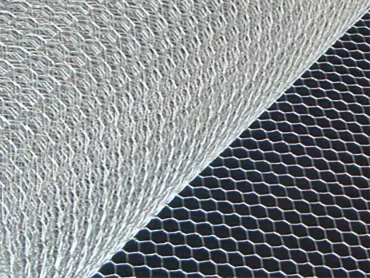Aug . 06, 2024 13:26 Back to list
Durable Welded Fencing Wire Solutions for Secure and Reliable Property Protection
The Versatility of Welded Fencing Wire A Comprehensive Overview
Welded fencing wire is a significant material widely utilized in various applications, primarily for security and structural purposes. Characterized by its robust nature and enhanced durability, welded fencing wire offers an ideal solution for countless fencing needs, whether for residential, agricultural, or industrial settings.
Composition and Structure
At its core, welded fencing wire consists of steel wires that are welded together at their intersections, creating a grid-like structure. This welding process not only strengthens each joint but also enhances the overall integrity of the fence. The wires are typically coated with galvanization or vinyl to provide corrosion resistance, ensuring a longer lifespan even in harsh weather conditions. The standard gauge of welded wire fencing can vary, but it typically ranges from 14 to 8 gauge, with heavier gauges providing more strength and stability.
Applications
One of the primary uses of welded fencing wire is in the agricultural sector. Farmers frequently utilize it to create enclosures for livestock, ensuring that animals are contained while providing adequate ventilation. The strength of welded fencing wire prevents animals from pushing through, offering peace of mind to livestock owners. Additionally, it can be used for protecting gardens and crops from pests and larger wildlife, thus serving as a versatile barrier.
In residential areas, welded fencing wire serves as an effective security solution. Homeowners install it to safeguard their properties, as its sturdy construction makes it challenging for intruders to breach. Furthermore, welded fencing can enhance the aesthetic appeal of a property. With various designs and finishes available, it can be customized to fit the architectural style of a home while still providing a measure of security.
welded fencing wire

The industrial sector also benefits from welded fencing wire in numerous ways. It is commonly used to demarcate boundaries, protect valuable equipment, and create secure perimeters around warehouses and distribution centers. Its durability makes it suitable for both indoor and outdoor applications, where it can withstand the rigors of a demanding environment.
Benefits
One of the main advantages of welded fencing wire is its longevity. Unlike traditional fencing methods, which may degrade over time, welded fences retain their form and function for many years. This resilience translates to lower maintenance costs for users, as repairs and replacements are less frequent.
Another key benefit is the ease of installation. Welded fencing wire is typically sold in panels, which can be quickly and easily installed, saving time and labor costs. Moreover, its versatility allows it to be adapted for various terrains and settings, making it a go-to choice for many fencing projects.
Conclusion
In summary, welded fencing wire is a highly versatile and durable material that finds a plethora of applications across different sectors. Whether used in agricultural settings, residential properties, or industrial environments, its robust nature makes it an ideal solution for security and enclosure needs. As security concerns continue to rise along with the demand for reliable fencing options, welded fencing wire will undoubtedly remain a top choice for homeowners, farmers, and business owners alike. Its ability to combine strength, longevity, and aesthetic versatility solidifies its standing as an invaluable material in the world of fencing.
-
The Role of Field Wire Fence in Grassland Conservation
NewsJul.15,2025
-
Stainless Steel Razor Wire Durability in Coastal Environments
NewsJul.15,2025
-
Enhancing Home Security with Mesh Fences
NewsJul.15,2025
-
Diamond Mesh Wire for Small Animal Enclosures
NewsJul.15,2025
-
Common Wire Nail Tensile Strength Testing for Woodworking
NewsJul.15,2025
-
Barbed Wire Corrosion Resistance Galvanization Techniques
NewsJul.15,2025









